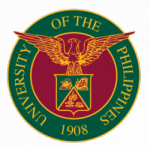This course aims to equip the participants with the essentials of policy analysis. It develops their analytical thinking skills in dissecting policies. It also helps them better appreciate the policy process from problem identification to the proposal of alternatives.
Author: Padayon UP
CO has been very vital towards the journey of empowering people’s organization and community based organizations. Through this training, the participants are expected to understand the principles, values, processes and approaches in doing CO.
This program aims to assist the barangay development council in the formulation of their integrated development plans.
The project aims to assess the impact of the program or project of the requesting organization. SIA helps organizations to plan better and to implement more effective development programs/projects. It also facilitates accountability, supports stakeholder communication, and helps guide the allocation of resources.
Public, private and government institutions of today operate in an environment characterized by intense competition, constant change and a strong customer focus. Considering today’s business environment, there is a strong need in all sectors and at all levels of the economy to apply engineering principles throughout the enterprise. The Department of Industrial Engineering of the University of the Philippines Los Baños recognized this as an opportunity to expand its horizons and networks and at the same time serve its core functions of research, instruction and extension. Thus in 2012, the MSEP was instituted. Several projects and services have since been offered to the university, and other public and private institutions.
UP CIS Disaster Response is an extension service of the Center for International Studies that provides assistance to communities which have experienced natural disasters. Forms of assistance include collection of relief packs and raising awareness about disaster in such communities.
The CPS aims to develop baseline profiles of the communities, while the CNA aims to examine the communities’ current conditions and needs. The CPS and CNA will be helpful in the formulation of barangay integrated development plans by the development council, as well as in social development and management interventions. The DSDS has already conducted more than 300 community profile studies and community needs assessment in Laguna and Rizal since 1981.
These lectures and conferences are held in order to promote awareness and appreciation of various issues affecting Asian societies, especially Filipino society. This is in compliance with the mandate of the Asian Center under Republic Act 5334.
The POPLAW program had its modest beginnings in 1977. A pilot project involving several grassroots organizations was conducted to develop awareness of the various human rights guaranteed by Philippine law as an instrument for the enforcement and implementation of human rights. It provides citizens with the basic knowledge of the law as an instrument for the enforcement and implementation of human rights, and it also acquaints them with the fundamental procedure of the judicial and administrative system. The program also aims to develop a sense of involvement in the efforts towards community and national developments
The UP Law Office of Legal Aid (OLA) was established to provide free legal services to poor and disadvantaged clients. Legal assistance provided includes representation in judicial, quasi-judicial (administrative) bodies, in criminal, civil and administrative cases, contract drafting, assistance in negotiation involving security of their homes and persons, mediation, and arbitration to put an end to litigation. OLA also provides legal opinion on various legal issues.

